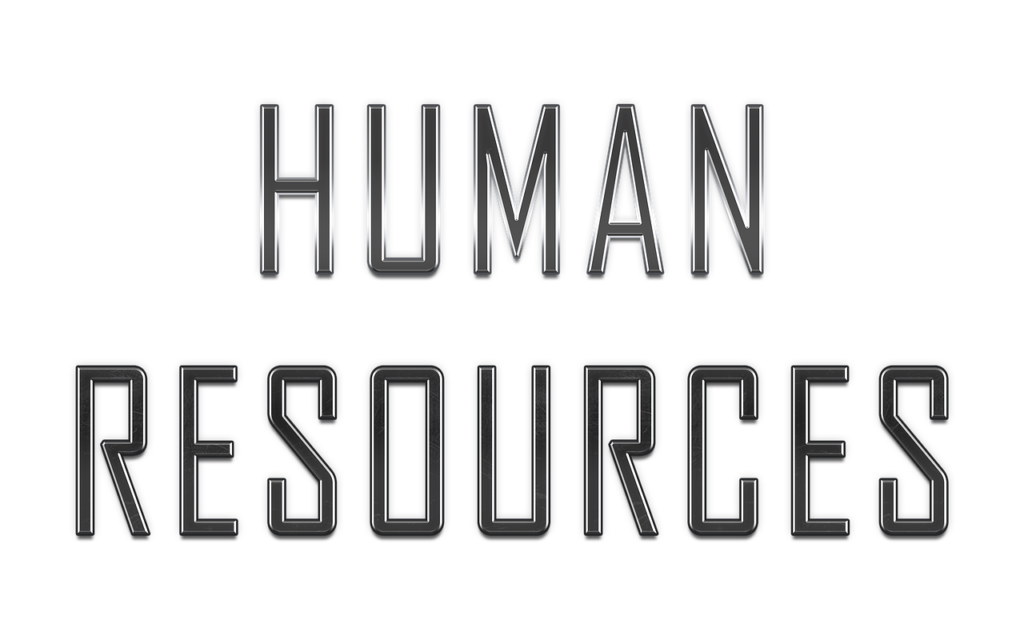Human resources managers play a crucial role in the success of organizations, overseeing employee relations, talent management, and workplace culture. As professionals responsible for nurturing a positive work environment, they contribute to employee satisfaction and engagement. This blog aims to provide valuable insights and guidance for individuals seeking to embark on a fulfilling career journey as a human resources manager.
What Does a Human Resources Manager Do?
A human resources manager has a wide array of responsibilities and duties that are essential to the smooth operation of an organization. These professionals are often tasked with recruiting, interviewing, and hiring new employees, as well as overseeing employee training and development programs. Additionally, they are responsible for managing employee benefits, compensation, and performance evaluations.
One of the most significant roles of an HR manager is developing and maintaining a positive company culture. They work to create an environment that promotes employee engagement, collaboration, and growth, fostering a sense of belonging among team members. This includes implementing policies and procedures that align with the organization’s values, as well as addressing any concerns or conflicts that arise within the workplace.
Human resources managers also have a direct impact on employee engagement and satisfaction. By providing support and resources to employees, they help to ensure that individuals feel valued and motivated in their roles. Through effective communication, feedback, and recognition, HR managers contribute to a workplace atmosphere that encourages productivity, innovation, and success.
Types of HR Managers
In the human resources field, professionals can choose to specialize in certain areas or maintain a generalist role. Generalist HR managers are responsible for handling a wide range of tasks, such as recruiting, employee relations, and benefits administration. On the other hand, specialist HR managers focus on specific aspects of the profession, allowing them to build deeper expertise in their chosen area.
Some common examples of specialized HR roles include the following:
- Talent acquisition specialists: focus on attracting and recruiting top talent
- Compensation and benefits analysts: design and manage employee rewards programs
- Learning and development managers: create and implement employee training initiatives.
Other specialized roles may concentrate on employee relations, diversity and inclusion, or human resources information systems (HRIS).
To identify the right HR career path for you, consider your strengths, interests, and long-term career goals. It’s essential to align your education and professional experiences with your desired HR specialization, ensuring that you develop the necessary skills and knowledge for your chosen role. As you progress in your career, you can continue to refine your focus and build expertise in the human resources field, ultimately becoming a successful HR manager.

Education Requirements for Becoming a Human Resources Manager
Acquiring the right education is a vital step in becoming a successful human resources manager. In this section, we will discuss degree programs relevant to HR management, the importance of aligning your education with your career goals, and the various online and traditional degree programs available for aspiring HR managers. Additionally, we will explore certifications and specialized courses that can supplement your education and enhance your skillset in human resources.
Degree Programs Relevant to HR Management
While a bachelor’s degree in human resources or a related field, such as business administration, is often required for HR manager positions, some organizations may prefer candidates with a master’s degree. Master’s programs, such as an MBA in human resources, can provide advanced knowledge in the field and increase your competitiveness in the job market.
Aligning Education with Career Goals
It’s crucial to choose an education path that aligns with your long-term career goals and interests. By doing so, you’ll be better equipped to apply your knowledge and skills in the workplace, leading to greater job satisfaction and career success. Whether you pursue a bachelor’s or master’s degree, ensure that the program you select covers the essential aspects of human resources management and provides opportunities for practical experience through internships or projects.
Online and Traditional Degree Programs for HR Managers
Both online and traditional degree programs are available for aspiring HR managers, offering flexibility and accessibility to accommodate your personal and professional needs. Online programs often provide the convenience of self-paced learning, while traditional programs offer a more structured and interactive learning environment. When choosing a program, consider your learning preferences, available resources, and time constraints to make an informed decision.
Certifications and Specialized Courses in Human Resources
In addition to obtaining a degree, pursuing certifications and specialized courses can enhance your credentials and demonstrate your commitment to professional development. Some popular certifications in the field of human resources include:
- Professional in Human Resources (PHR)
- Senior Professional in Human Resources (SPHR)
- SHRM Certified Professional (SHRM-CP)
- SHRM Senior Certified Professional (SHRM-SCP)
These certifications, along with specialized courses in areas such as employment law, organizational development, and diversity and inclusion, can further strengthen your expertise and help you stand out in the competitive job market.

Professional Experience and Skills Needed for HR Managers
Acquiring professional experience and developing essential skills in human resources are crucial steps in becoming a successful HR manager. Starting with entry-level positions and internships can help you gain valuable insights into the field and build a strong foundation for your career. Furthermore, honing your communication, leadership, and problem-solving skills will enable you to excel in various HR roles. Finally, networking and establishing professional relationships are vital for career advancement and growth.
Entry-Level Positions and Internships in Human Resources
Starting with entry-level positions and internships in human resources will provide you with hands-on experience and expose you to the different aspects of HR management. These opportunities can help you understand the day-to-day tasks and challenges faced by HR professionals, enabling you to develop the necessary skills and expertise to advance in your career. Additionally, internships can help you build connections and gain valuable references that can aid in your job search.
Developing Skills in Communication, Leadership, and Problem-Solving
As an HR manager, you will need to possess strong communication, leadership, and problem-solving skills to effectively manage employees, address workplace issues, and implement HR strategies. Improving your communication skills will enable you to clearly convey policies and procedures to employees, as well as mediate conflicts and facilitate discussions. Leadership skills are essential for motivating employees and fostering a positive work environment, while problem-solving abilities are required to find solutions to complex HR challenges. Participating in workshops, training programs, and professional development courses can help you enhance these skills and further your career prospects.
Importance of Networking and Building Professional Relationships
Establishing and maintaining professional relationships is crucial for career growth and advancement in the field of human resources. Networking can help you learn about job opportunities, stay informed about industry trends, and gain insights from experienced professionals. Joining professional associations, attending industry events, and connecting with HR professionals on social media platforms can help you expand your network and enhance your career prospects. Moreover, fostering strong relationships within your organization can lead to mentorship, collaboration, and increased visibility, ultimately paving the way for promotion and success in your HR management career.

Human Resources Manager Salary and Job Outlook
As you plan your career in human resources management, it’s essential to understand the salary potential and job outlook for this profession. In this section, we’ll explore the average human resources manager salary, factors that can affect your earnings, and the projected job growth for this role.
Average Human Resources Manager Salary
The salary of a human resources manager can vary depending on factors such as location, industry, and level of experience. According to the U.S. Bureau of Labor Statistics, the median annual wage for human resources managers in 2022 was $130,000. This figure can provide a general benchmark for understanding the earning potential in this field, but it’s important to keep in mind that individual salaries may differ.
Factors Affecting HR Manager Salary
Several factors can influence the salary of a human resources manager. Some of these factors include:
- Geographical location: Salaries can vary significantly based on the cost of living and demand for HR professionals in different regions. HR managers in metropolitan areas tend to earn higher salaries than those in rural areas.
- Industry: The industry in which you work can also impact your salary. HR managers in industries such as finance, technology, and healthcare often command higher salaries due to the specialized knowledge and expertise required for these sectors.
- Experience and education: As with most professions, the level of experience and education can have a considerable effect on your earning potential. HR managers with advanced degrees and significant experience are likely to earn higher salaries.
- Company size: The size of the organization you work for can impact your salary, with larger companies typically offering higher compensation packages due to their greater resources and more complex HR needs.
Job Growth Projections for Human Resources Managers
Understanding the job outlook for human resources managers can help you make informed decisions about your career path and anticipate potential challenges and opportunities. According to the U.S. Bureau of Labor Statistics, employment for human resources managers is projected to grow 5% from 2022 to 2032, which is faster than the average for all occupations. This growth is driven by the ongoing need for organizations to attract, retain, and develop their workforce, ensuring continued demand for skilled HR professionals.
In conclusion, pursuing a career as a human resources manager can offer a promising salary potential and positive job outlook. By understanding the factors that influence earnings and job growth, you can make informed decisions about your education and career path, setting yourself up for success in this rewarding field.
Steps to Becoming a Human Resources Manager
Embarking on a career in human resources management requires a combination of education, experience, networking, and staying current with industry trends. In this section, we will discuss the essential steps to become a successful human resources manager, providing you with a roadmap to guide you through your professional journey.
Pursuing a Relevant Degree or Certification Program
One of the first steps to becoming a human resources manager is obtaining a relevant degree or certification. As mentioned earlier, a bachelor’s degree in human resources or a related field is often required, while some organizations may prefer candidates with a master’s degree. Additionally, certifications such as the Professional in Human Resources (PHR) or SHRM Certified Professional (SHRM-CP) can demonstrate your commitment to the field and enhance your credentials.
Gaining Professional Experience in Human Resources
Acquiring hands-on experience is crucial in developing the necessary skills and expertise for a successful career in HR management. Start with entry-level positions or internships in human resources to gain exposure to the different aspects of the profession and build a strong foundation. As you progress in your career, seek opportunities to take on increased responsibilities and leadership roles to further your growth and development.
Networking and Professional Development Opportunities
Establishing and maintaining professional relationships is vital for career growth and advancement. Networking can help you learn about job opportunities, stay informed about industry trends, and gain insights from experienced professionals. Join professional associations, attend industry events, and connect with HR professionals on social media platforms to expand your network and enhance your career prospects.
Staying Current with Industry Trends and Best Practices
As an HR manager, it’s important to stay informed about the latest trends and best practices in the field to ensure you remain competitive and effective in your role. Regularly read industry publications, attend conferences and workshops, and participate in online forums and discussions to stay up-to-date on the latest developments and innovations in human resources management. Staying current with industry trends will enable you to adapt to changing business environments and ensure your organization’s HR strategies remain relevant and effective.
By following these steps and remaining committed to your personal and professional growth, you can successfully navigate the journey to becoming a human resources manager. With the right education, experience, and support, you’ll be well-equipped to excel in this rewarding and impactful profession.

Is HR Management a Good Career Choice?
Deciding whether a career in human resources management is the right path for you involves evaluating several aspects, such as the pros and cons of the profession, factors to consider in making your decision, and aligning your personal goals and values with a career in HR management. In this section, we will explore these topics to help you make an informed decision about pursuing a career in HR management.
Firstly, consider the pros and cons of pursuing a career in human resources management. Some of the advantages include the opportunity to work with diverse people, the potential for professional growth, and the ability to positively impact organizational culture. Moreover, HR professionals can often find employment in various industries and enjoy a competitive salary. However, some challenges may include dealing with difficult situations such as employee conflicts, layoffs, and legal compliance. Additionally, HR managers may face high levels of stress and pressure to meet the organization’s goals and objectives.
When deciding if HR management is the right choice for you, it’s essential to consider factors such as your interests, skills, and long-term career goals. For instance, if you enjoy working with people, problem-solving, and have strong communication and leadership abilities, a career in HR management may be a good fit. On the other hand, if you prefer working independently or are not comfortable handling sensitive situations, you may want to explore other career options.
Aligning your personal goals and values with a career in HR management is crucial for long-term job satisfaction and success. Reflect on your motivations and aspirations to ensure that a career in HR aligns with your overall life goals. For example, if you value personal growth and enrichment, a career in HR management can offer opportunities for continuous learning and development. Additionally, if you are passionate about helping others and making a positive impact in the workplace, HR management can provide a rewarding and fulfilling career path.
Determining if HR management is a good career choice for you requires careful consideration of the pros and cons, personal interests and skills, and alignment with your long-term goals and values. By taking the time to evaluate these aspects, you can make an informed decision and confidently pursue a career in HR management, knowing that it aligns with your personal and professional aspirations.
Your HR Management Success Awaits
We’ve explored the steps to become a human resources manager, including pursuing relevant education, gaining professional experience, networking, and staying current with industry trends. With a clear understanding of the process and the support provided by Pathways to Advancement, you’re well-equipped to pursue a career aligned with your education and goals. Don’t wait to begin your journey towards success in HR management; visit Pathways to Advancement for support and resources to help you reach your career goals.
